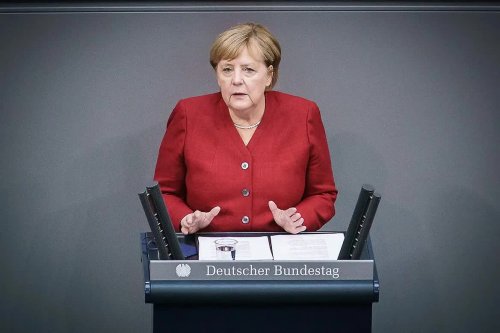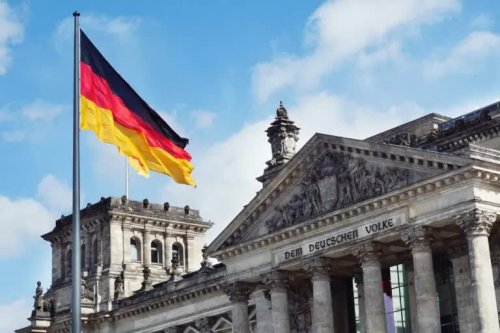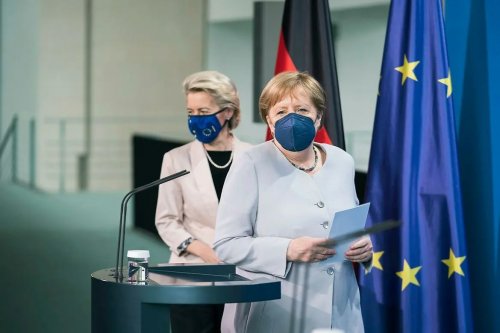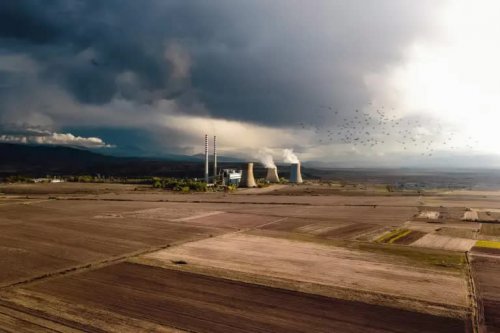Łukasz Pawłowski: How do you assess the current situation in Ukraine from both the perspective of Russia and the perspective of the West?
Looking from the outside, it appears to be a deadlock, because there are no clever ideas about how to settle this crisis beyond the so-called Minsk process. We see it’s almost impossible to agree what should be done in practice. Very soon, we will need a new round of very intense diplomatic work to specify and clarify Minsk commitments and to sign a new treaty.
What’s difficult about resolving this conflict? Russian soldiers should pull out of Ukraine and Russian authorities should stop supporting the rebels. That’s it. Why is it so difficult to achieve any lasting agreement?
Because so-called rebels and so-called Republics are a political reality and for Russia abandoning them would mean a political failure and actual defeat. Ukrainian leaders and European leaders understand that countries like Russia – even if it is in a pretty bad economic situation – wouldn’t agree terms, which will be interpreted by everybody as a defeat.
Do I understand correctly that supporting the rebels in eastern Ukraine was a mistake made by the Kremlin?
I try not to be a journalist to decide whether it was good or bad decision. I see it as a chain of moves which partly or even mostly were not pre-planned. The situation developed step by step, from one reaction to the next. The consequence we see is not satisfactory at all, of course. We can’t say that Russia has achieved any sort of major success. But it happened. Now, should we withdraw support for separatist leaders and say “Sorry, that was a mistake”? Big powers don’t do such things, if they wish to remain big powers.
What would be an ideal solution of the current situation from the Kremlin perspective?
Ideally, it would a transformed Ukrainian statehood which would allow more autonomy at least for Donbas and some kind of a deal – maybe with Ukrainians, but rather with Americans – which would say that NATO membership for Ukraine is not on the agenda.
Why do you think that West should accept such solution? You said that withdrawing from Ukraine would be humiliating to Russia, but agreeing to a partitioning of Ukraine would be humiliating to the West. The United States and Great Britain guaranteed its territorial integrity in Budapest Memorandum back in 1990’s.
Of course, the situation when Crimea is de facto Russian is a challenge to the reputation of the West, but unfortunately the only way to change it is war. If NATO would be ready to fight for Crimea and Ukrainian integrity, then of course the situation would be completely different. But it’s not the case. This means that in one form or another it should be settled. I don’t think that Crimea issue can be settled soon, because for the West morally and politically it would be impossible to just accept this change of borders. On the other hand, the incorporation of the Baltic states was never formally accepted by United States, but it didn’t bar them from having diplomatic relations with the Soviet Union. Crimea is a long lasting problem, which might be settled one beautiful day, but certainly not soon.
Are you saying that Russian authorities would be ready to start a war over Crimea? Is its prestige so important for Russia?
As long as Western pressure does not involve military force, I don’t think that Russia will start a war. If, however, Ukraine with NATO or some other power tried to take Crimea by force, then of course Russia would fight for it. No doubt about it.
What motivation then does Moscow have to settle this crisis? Why would they do it if maybe – as some commentators in the West say – destabilizing Ukraine in a long run was the main goal behind starting this conflict?
Russia is not interested in taking this part of Ukraine. It’s pretty obvious – if Russia wanted to continue the fragmentation of Ukraine, it had many chances to do it last year. Secondly, the situation in Donbas is very bad and Russia is ready to support these territories, but not indefinitely. And, due to its economic problems, it would be better for Moscow to find a solution, to at least share the burden and to reintegrate Donbas into Ukraine, but on different conditions. Thirdly, the economic sanctions are having an impact and Moscow would like to stop them, but not at any cost.
From what you are saying it seems that the war in Donbas is some kind of accident, whereas in the West the major narrative says that this was deliberately started by Mr. Putin to create a land corridor from Russia to the Crimea.
I’m afraid this interpretation is based on an overestimated assessment of Russian strategic thinking. Being here, my feeling is that a clear aim for policy vis-a-vis eastern Ukraine never existed. There were different ideas starting from non-intervention and ending with a full-scale military invasion back in the spring 2014. You can see the difference: in case of Crimea – whatever you think of it – a clear decision was made and rapidly executed. As a result, Crimea is de facto a part of Russia. In eastern Ukraine no clear decision was made, no clear strategy developed and implemented. And we can see the result – no-one knows what will happen next.
Are you saying that a crisis that may destabilize the whole Europe was not a deliberate decision, but a result of a chain of events nobody actually controls?
A chain of events which no-one is in full control of. It started even before the Maidan protests during the struggle between Russia and the EU as to which camp Ukraine should belong to.
When commenting on Vladimir Putin’s annual public press conference, you wrote that “Putin repeated all of his standard phrases and ideas, but without the passion and tension seen in many of his public appearances in recent years. His comments revealed no desire for an escalation of the current conflict”. On the other hand, some recent decisions taken by the Kremlin – such as sentencing Oleg Sentsov to 20 years of imprisonment or the proposition to build an air base in Belarus – seem to prove exactly the opposite. Would you still say that president Putin is not interested in escalating the conflict?
We should make a distinction – there is a very particular conflict in eastern Ukraine and this is what I meant it when I wrote about the lack of will to escalate it. I believe Russian elites are tired of it and would like to at least freeze it, or find a solution, but not at any cost.
As for what you say, you need to remember that this is a bilateral process of mutual provocations. Russia has the right to built an air-base in Belarus, as the two countries are allies. NATO is constantly discussing strengthening its capacity in the Baltic states and Eastern Europe. This is a typical quasi-cold war type of exchange, yet during the cold war it was much more regulated, because everybody knew rules of confrontation.
You say that Russia will not benefit from escalating the conflict, but it might be beneficial personally to Mr. Putin as a way of distracting public attention from Russia’s domestic troubles.
It’s not beneficial for Russia or for others. I think Hans Morgenthau once said that the driving force behind international relations is various states’ fight for power and prestige. These notions might be understood differently in different cases, but it’s the key for all international relations. After all that has happened in Ukraine, we need a solution which would allow both sides to compromise mutually.
But is it a fight for Russian prestige or personal prestige of Mr. Putin in order to allow him to remain in power?
I think the role of Putin is seriously overestimated in the West.
What do you mean?
Putin is demonized as a genius or a devil. But if you look at the Russian opinion polls now you’ll see that the public believe Russia should be a strong and proud power. You can obviously blame Russian propaganda for this, but Soviet propaganda in the 1970’s and 1980’s was much more widespread than the current one and still did not work. Now, people believe, which means the propaganda touches sentiments which are there even without it.
One of the leitmotifs when discussing Russian politics in Western media is the position of Vladimir Putin. Only recently there was an article by Paul Gregory published in “Forbes” in which the author claimed there is a “slow putsch” going on against the president. We hear such predictions quite often, but so far none of them proved to be true. Is there any way we can assess Putin’s current position in the Kremlin and if he’s really in danger of losing power?
I’m sure we have no methodology to do it. And all those articles are interesting to read, but nothing more.
How then would you reply to a question – is Vladimir Putin going to lose his power soon?
No way. I see no reasons why you would expect things to develop this way in the foreseeable future. But the crisis of the Russian model of development is obvious. It was obvious even before the Ukrainian collision. Already, when Putin returned to power in 2012, he was aware that something needs to be done to reinvigorate development of Russian society, economy and political system. He tried to find something, but unfortunately he failed. In this regard, the Ukrainian crisis served as an escape, because it changed the situation completely and boosted patriotic feelings. Yet it did not solve the initial problem – what is the basis for Russian development in the future. Now, we see a lot of signs that this question is becoming more and more acute, though it has no direct link to the personal position of the president.
Even if the economic situation deteriorates further this will not have any political consequences for the Russian authorities?
At least I cannot see it now.
Due to the difficulties in relations between the West and Russia, is there any plan in Moscow to approach other allies? Do the BRICS countries offer an alternative for Russia or are they too diverse to create a lasting union?
BRICS is not an alternative way of economic development. It is not a consolidated and unified entity. It is an interesting framework of developing non-western approaches to international problems. It is not anti-western – in fact Russia is the most anti-western of all of the countries, others are not interested in confrontation with the West.
As for the alternatives for Russia, the inevitable direction is Asia, although I don’t think it will be a replacement for the relations with Europe. But even without the Ukrainian crisis that would be an inevitable part of Russian development, because Asia is playing a more and more important role in international relations and economic development. And, let me remind you, the figure even we in Russia tend to forget – ¾ of Russian territory lies in Asia. In these circumstances, it would be strange not to have active Asian policy, which in fact Russian never had before.
But there are at least two problems with Russian relations with the biggest Asian country, China. Firstly, in relations with China Russia is now a junior partner, and secondly there’s a danger the eastern part of Russian territory may be annexed by the overflowing Chinese population.
We have been hearing about Chinese annexing eastern parts of Russia since 1990’s. But they are not coming and that’s a problem. And I mean it is a problem, because for a more or less balanced economic development we really need Chinese investment, Chinese technologies and its people. Yet they don’t seem to be interested to come.
As for being a junior partner, economically there’s no comparison between the two countries, with China way ahead. Politically, however, it is slightly different. We still see that China has difficulty in behaving like a great power. Unlike Europe and Russia, they don’t know how to behave in a situation when they play a really big role at the international stage. The Chinese body, so to say, is much bigger than Chinese brain. That is one of the advantages Russia has over China.
The other is that China now seems to be under a lot of pressure from the United States. Frankly, I do not understand American foreign policy when they simultaneously put pressure on Russia and China, pushing them closer together. Kissinger and Nixon knew very well that first of one needs to separate China and Soviet Union. But now Obama’s administration seems to be doing the exact opposite. China is concerned about relations with the U.S. and thus wants to have Russia as a loyal and reliable partner. I’m not saying this relation is unproblematic, but it is absolutely inevitable Russia and China will be closer to each other. Russia will need to make a pivot to Asia just as the U.S. is trying to do.
Recently, an international poll was published by the Pew Research Center. In the summary we read that “outside its borders, neither Russia nor its president Vladimir Putin receive much support or respect. A median of only 30 percent see Russia favorably in the nations outside Russia”. Does this deteriorating image have any influence on Russian politics? Is it even noticed?
It does not have much impact, because the psychology of the Russian people and their political establishment unfortunately leads them to look at the outside world as hostile. This is very much rooted in historical experience. And if you have such a view of the outside world, you don’t expect the outside world to have any warm feelings towards you. Hostility is then seen as normal.












